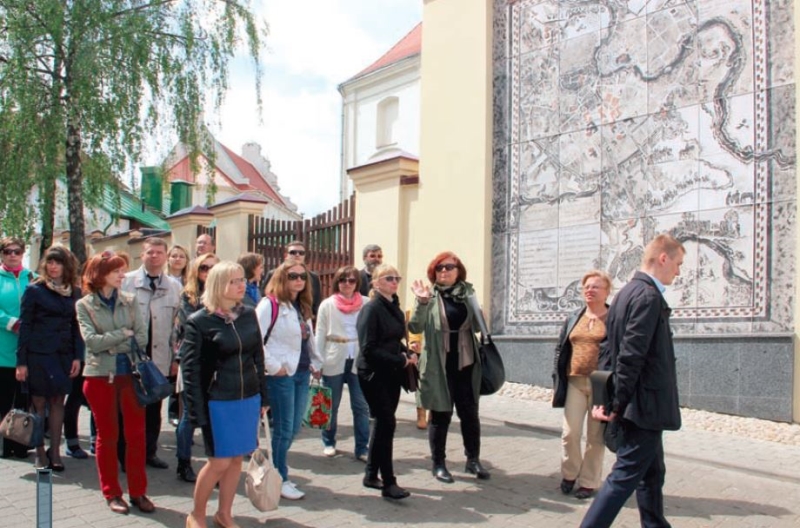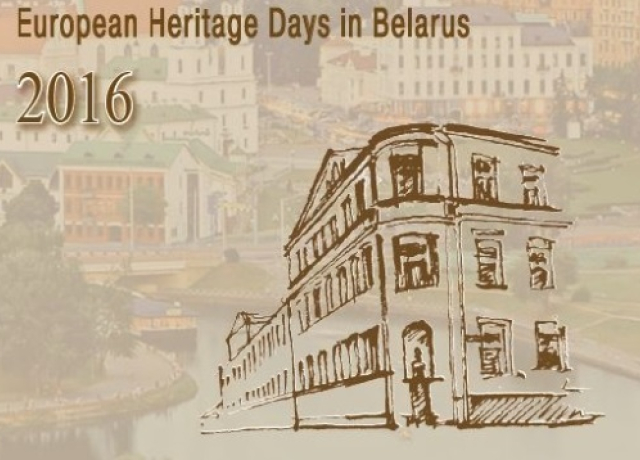Highlighting the Originality the Belarusian of Culture in the Pan-European Context
Highlighting the Originality the Belarusian of Culture in the Pan-European Context
Adapting the 2016 common theme to reflect the need for educating citizens on their past, the European Heritage Days events in Belarus celebrated “Heritage and Knowledge” through a unique set of cultural activities. The creative approach to celebrations has motivated local and national institutions in Grodno, Vitebsk and Minsk to join the festival by showcasing their unique cultural offering.
The events were officially opened in the Art Gallery of Mikhail Savitsky on the 30th September, when 100 attendees gathered to celebrate the new programme. On this occasion, the deputy minister of culture Alexander Yatsko noted that cultural heritage is “a source of knowledge of the historical past, cultural properties of the country, people who created it and ourselves,” adding that this year’s theme “seeks to show originality the Belarusian of culture in the context of the all-European cultural space.” Natalia Khvir, National Coordinator of European Heritage Days in Belarus notes:
“The Heritage and Knowledge theme for 2016 was prompted by the enormous information and educational potential embedded in cultural heritage of communities. The event was focused on the source of knowledge about the historical past, the cultural assets of the country, as well as about the communities who created them. In every stone wall, historic building or plasterwork lays a treasure of knowledge and skills, memory context of a place.”
The understanding of the need to promote cultural heritage on a pan-European level has contributed to another successful European Heritage Days year in Belarus. The organisers saw increased participation of local cultural institutions which organised some remarkable programmes for free.

Among the most interesting events, the National Historical Museum of the Republic of Belarus attracted hundreds of visitors to a photo exhibition titled Cities and Towns of Minsk Regions. Urbanistic Sketches, which was conceptualised as a historical retrospective of modern cities, highlighting their archaeological past and various heritage gems that have been lost through history. In addition to this, a youth public association Historika submitted the Retro Panorama — Minsk project, whose purpose is the recreation of the heritage of Minsk in the urban environment, as well as the presentation of Belarusian archive of oral history, an online collection of electronic documents on oral history of Belarus in the XX century.
“Heritage and Knowledge was chosen as a central theme of the 2016 European Heritage Days in Belarus as a way to transmit relevant heritage information from heritage managers to everyday citizens. We hope to encourage even more people to become a part of the European Heritage Days festivities, as well as heritage conservation and enhancement initiatives. We believe that educating them on the unique values of heritage around us is the first step to achieving this goal,” adds Natalia Muryna, heritage expert from the Ministry of Culture of Belarus.
The scope of the events engaged over a thousand of visitors in the exploration of some of the most valuable heritage sites of Belarus. Foregrounding the fact that heritage participation and enhancement is only possible through consistent learning about the heritage that surrounds us, the events successfully promoted the importance of heritage education.
